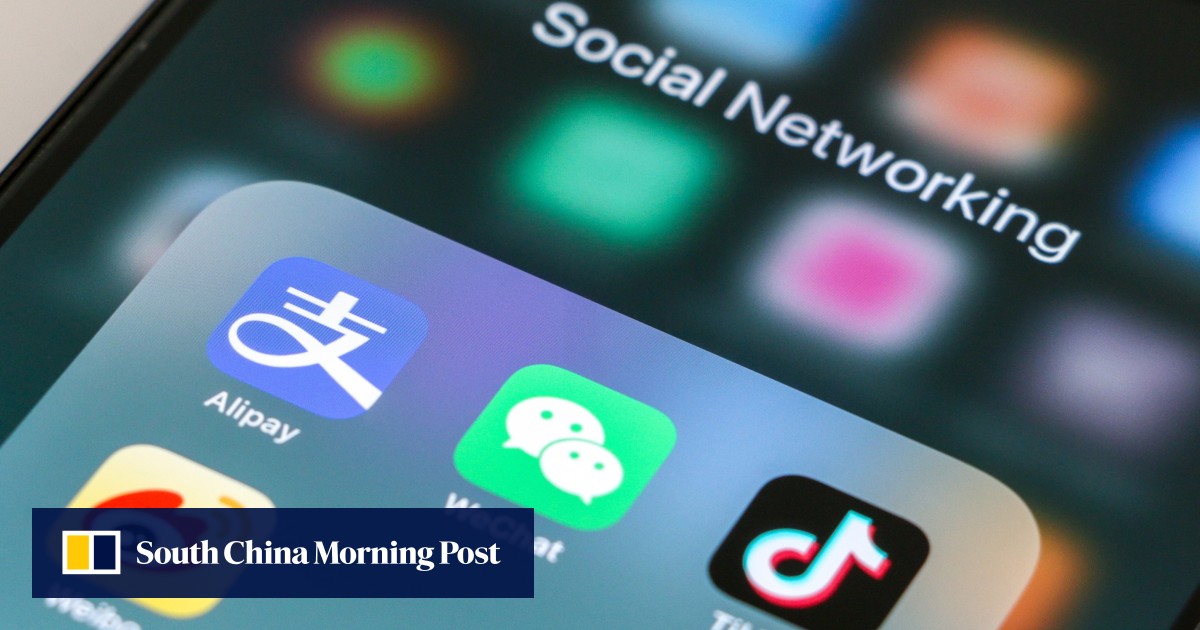Dozens of cities in the provinces of Guangdong, Sichuan, Yunnan, Hunan, Shaanxi, Shandong and Jiangsu, as well as Guangxi Zhuang autonomous region, have announced plans so far this year to cut back on government department websites, social media accounts and smartphone applications, research by the Post shows.
One of the latest to do so was Longgang district in the southern megacity of Shenzhen. In the first week of May, it announced that web services for its land supervision and state-owned assets bureaus would be shut down, as both bodies had been merged into other agencies.
That same week, Guangxi shut down the website and social media accounts of its sugar industry development office. This has been absorbed into the Guangxi Development and Reform Commission, the region’s top economic planning agency.
On April 28, Sichuan’s Bazhong city said it would shut down the website and social media accounts of its rural revitalisation bureau, financial work bureau and government services and public resource service centre, as they had been merged into other government bodies.
Some others to exit the internet include the Wuhua district veterans’ affairs bureau in the city of Kunming, the Yuhua district market supervision bureau in Changsha, the Zhenxing subdistrict of the city of Jinan, the Weiyang district culture, tourism and sports bureau in Xian, the Linwei district judicial bureau in Shaanxi’s Weinan city, and the urban management bureau of Nanjing’s Jiangning district.
While these offices continue to exist, their websites, social media accounts and smartphone apps have been absorbed by higher-level municipal agencies, according to the announcements.
The streamlining efforts come less than six months after the Cyberspace Administration of China issued a directive ordering local governments to consolidate “similar and duplicate functions”, as many online platforms were white elephants or even “zombies” controlled by internet trolls.
A Shenzhen official involved in a few municipal web platforms said the feverish pursuit of online engagement had caused “lots of stress to the ground staff”.
“After posting content to our account, we have to mobilise our colleagues and friends to help us to click on them. I even ask my parents and grandparents for help,” she said with a laugh, adding that consolidation was “indeed necessary”.
“Many are happy to see the consolidation efforts. I hope one day we will not need to sit for the whole day to post and click on repetitive content,” she said.
Ma Liming, an associate professor at Jinan University’s school of journalism and communication, echoed those views in an interview with Chinese media earlier this week.
“It is becoming way too complex as even subdistrict-level governments need to have their own government affairs new media platforms,” Ma told cnwest.com, the official news portal of Shaanxi province.
“For grass roots staff without media-related backgrounds, maintaining these zombie accounts has become a burden.
“On the other hand, is this really convenient and beneficial to the people if they need to follow a lot of accounts for government information services?”
Reductions in staff headcounts at local government agencies have also made the situation worse, as many have had to cut contract workers who are typically responsible for noncore functions such as updating websites and social media accounts.
The Chinese government’s feverish pursuit of domestic internet dominance began in November 2009, when Yunnan’s provincial propaganda department started using the microblogging platform Weibo to respond to public concerns about a massive protest triggered by sudden rent increases at a wholesale market in the provincial capital Kunming.
Local government affairs websites and social media accounts quickly became popular, especially after the State Council, China’s cabinet, released an official instruction in 2013 recognising that these platforms could help to strengthen government transparency and credibility.
According to China’s official Internet Development Report released on March 26, more than 146,000 government bodies had an official presence on Chinese social media platforms as of the end of last year.
Some government agencies, such as the Central Political and Legal Affairs Commission – the Communist Party’s top security body – and Shenzhen’s health commission, have managed to create popular social media accounts by using internet slang, cartoons and short videos to deliver their messages.
But many local government accounts have become neglected, with some taken over by hackers or internet trolls.
The Weibo account of the urban management team of Wuhan’s Wulijie subdistrict was found to have published a number of posts soliciting surrogacy and even prostitution from 2017 to 2019. The local government did not respond until 2021, saying the account had been hacked by criminals.








